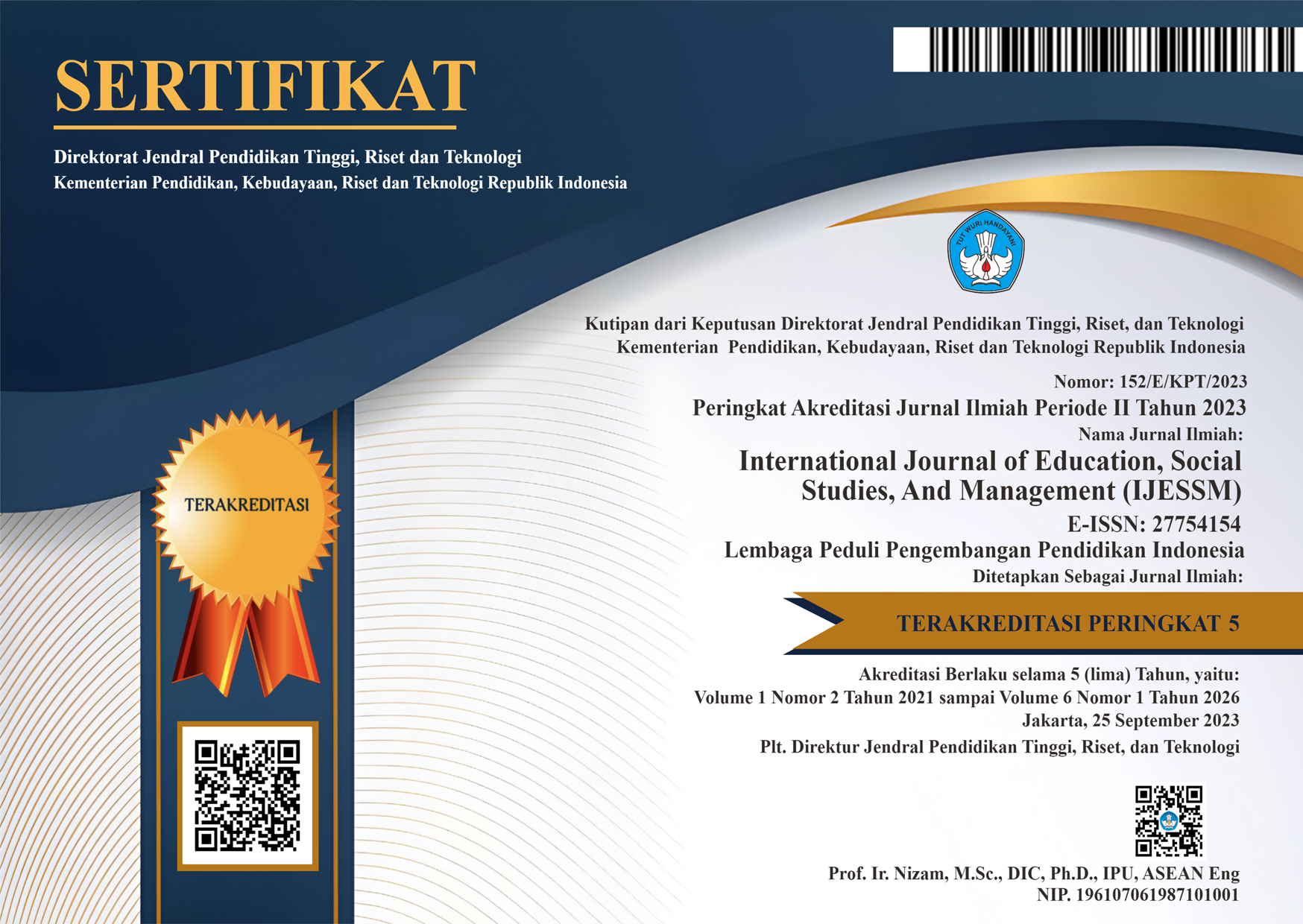Disaster Mitigation Knowledge Based on Local Wisdom Integration in Elementary Schools
DOI:
https://doi.org/10.52121/ijessm.v4i3.502Keywords:
Disaster Mitigation, Knowledge, Local Wisdom, Elementary SchoolAbstract
Elementary schools as a basic education environment have limited knowledge and understanding of disaster preparedness, both among students, teachers, and the surrounding community. The lack of effective educational strategies, especially in integrating local knowledge and traditional wisdom, is a major obstacle in preparing elementary schools to face disasters. This study aims to describe and analyze the forms of knowledge obtained from disaster preparedness education based on local wisdom integration for elementary schools. This study uses a qualitative case study method, where participants are selected from various stakeholders involved in elementary education and disaster preparedness. The results of the study indicate that various types of disaster preparedness education knowledge have been identified, including basic knowledge, specific disaster preparedness knowledge, local wisdom knowledge, emergency response and evacuation knowledge, environmental knowledge and prevention, and social knowledge and cooperation. Understanding disaster mitigation can influence students' attitudes and behaviors in facing disasters, so that by providing elementary school students with comprehensive and contextual knowledge about disaster mitigation, equipping them with important and wiser life skills.
Downloads
Published
How to Cite
Issue
Section
License
Copyright (c) 2024 International Journal Of Education, Social Studies, And Management (IJESSM)

This work is licensed under a Creative Commons Attribution 4.0 International License.

















